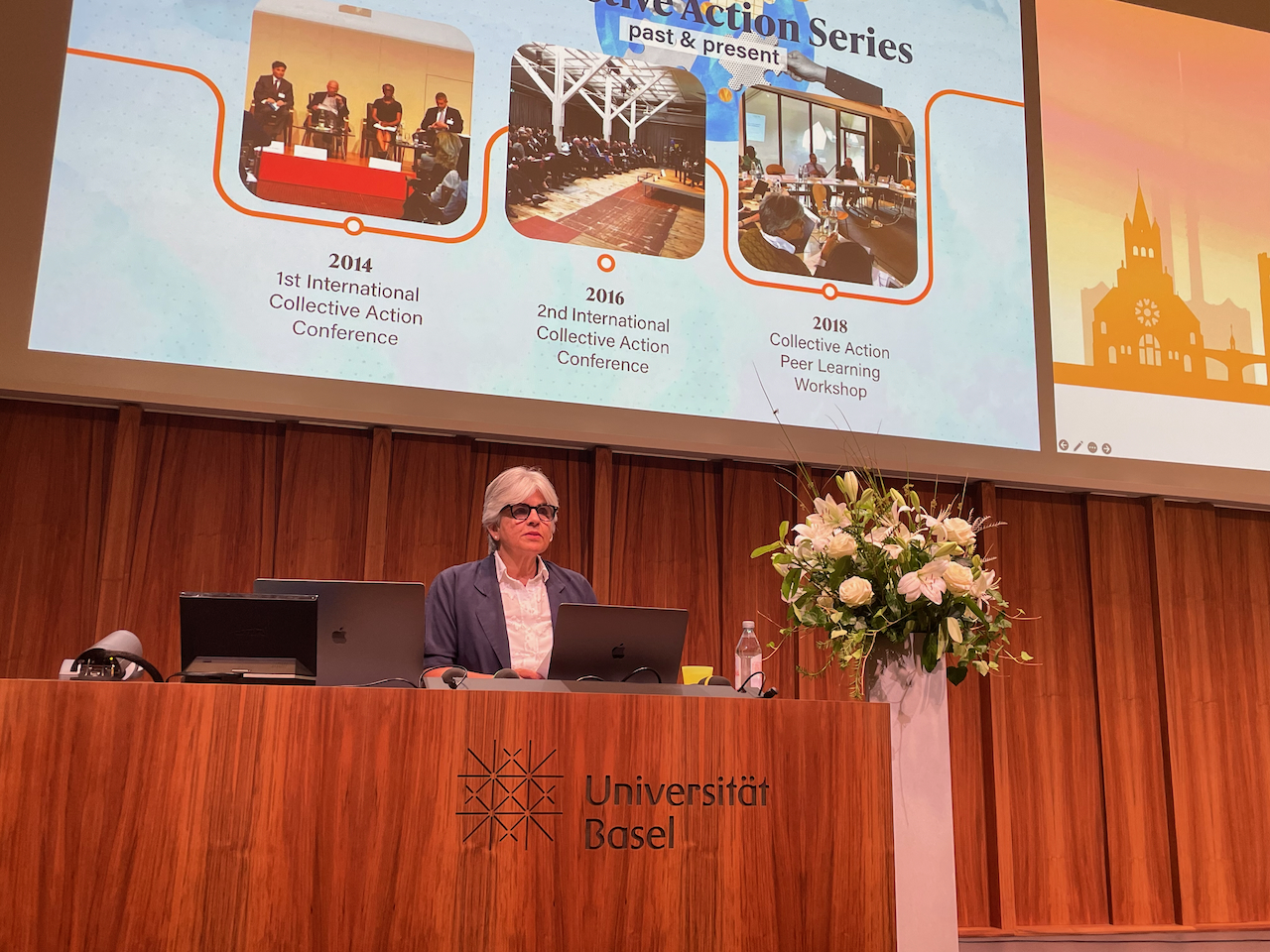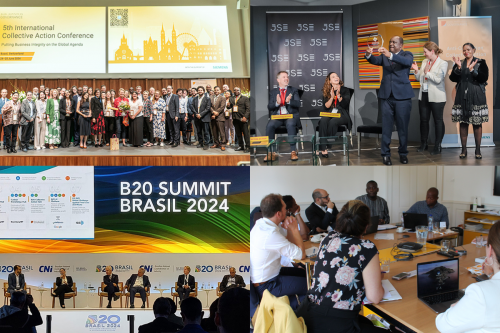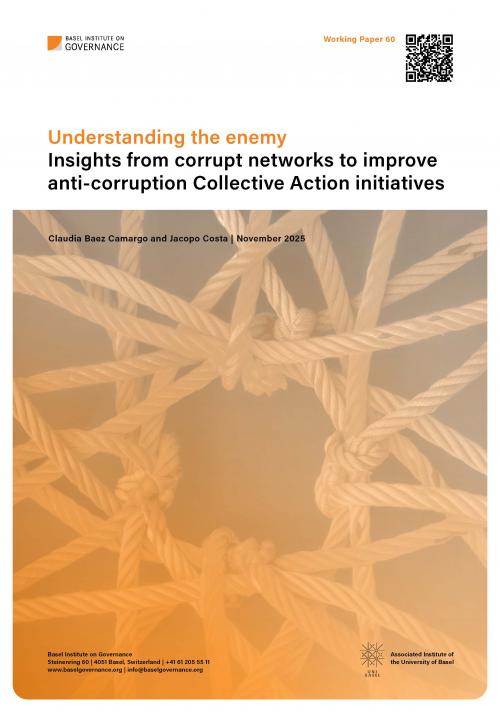Gemma Aiolfi: Tribute to Gretta Fenner at the 5th International Collective Action Conference

Gemma Aiolfi led the Basel Institute’s Compliance and Collective Action work for many years, working closely with our late Managing Director Gretta Fenner as well as our former President Mark Pieth to transform private-sector engagement in the fight against corruption.
At the 5th International Collective Action Conference on 24 June 2024, Gemma spoke of Gretta’s passion and efforts over the years to promote and support Collective Action approaches and initiatives. Her speech, which you can watch here, preceded the prize-giving ceremony for the 2024 International Anti-Corruption Collective Action Awards, in which one of the Awards has been renamed in memory of Gretta.
It is a pleasure and privilege for me to announce that the Outstanding Achievement Award is being renamed in honour and recognition of Gretta Fenner’s commitment to Collective Action, over all the years that she led the Institute.In fact, her approach to collaboration, bringing people together, breaking down silos and seeking practical solutions to difficult problems, really started when she first began her professional career at the OECD, when she convened multi-stakeholder meetings in the Asia-Pacific region in the aftermath of the 2004 tsunami.
And so it’s fitting that the Basel Institute’s Private Sector team continues to work with the OECD to support and develop anti-corruption Collective Action in that region.
As many of you may know, Collective Action was the initial inspiration for establishing the Basel Institute. Our founder, Professor Mark Pieth, was closely involved in the Wolfsberg Group and the World Economic Forum’s Partnering Against Corruption Initiative. He had an ambition to help the private sector to prevent corruption as a complementary approach to his work at the OECD to criminalise bribery through laws and regulations. In those days we called these multi-stakeholder efforts “industry standards”.
So when Gretta first joined the institute, “Collective Action” as a term for anti-corruption initiatives wasn’t yet part of the terminology. But she embraced the concept because it resonated with her. And she supported the World Economic Forum and Wolfsberg Group initiatives as part of building up the Institute, in those early days.
I think it’s fair to say that her belief in the power of collaboration between governments, companies and civil society really informed the way she believed the Institute itself should approach its work. Not only in the Private Sector team, but also in asset recovery, green corruption and the training methodologies as well.
Gretta personified all the positive and good elements that we need and talk about in Collective Action: She had the rare gift of being a very good listener, courageous, innovative, diplomatic, mostly optimistic, and she was also a realist.
So we had many discussions over the years about how to raise awareness about Collective Action, to mainstream it into a norm and to make it part of the toolkit to address corruption.
She recognised that improving private-sector compliance programmes presented an opportunity to suggest Collective Action as a way to reduce corruption risks in challenging markets. She supported and advocated for its inclusion in the OECD Anti-Bribery Recommendation, as well as in other guidance and policy documents, such as in National Anti-Corruption Strategies.
Whenever Gretta returned to the office from her international travels and meetings she was always excited to tell us about any glimmer of an opportunity to promote Collective Action in a particular location or with a potential partner.
While Gretta emphasised that each sector has its own unique role and responsibility, she also knew that it’s only through joint efforts that we can create sustainable and impactful solutions to combat bribery.
She saw the bigger picture, and knew how to bring it all together: Governments must establish robust legal frameworks and enforce anti-bribery laws; businesses should foster cultures of integrity and implement stringent compliance measures; and civil society can hold both public and private sectors accountable, as well as act as facilitators of Collective Action initiatives.
For those of you who have attended our Collective Action conferences over the last 10 years, or participated in any of the other many meetings around the world, I’m sure you’ll recall Gretta’s grace, determination and great sense of humour.
I do believe she would have been modestly delighted to know that the Award for Outstanding Achievement in Collective Action is now being given in her name. Thank you.




